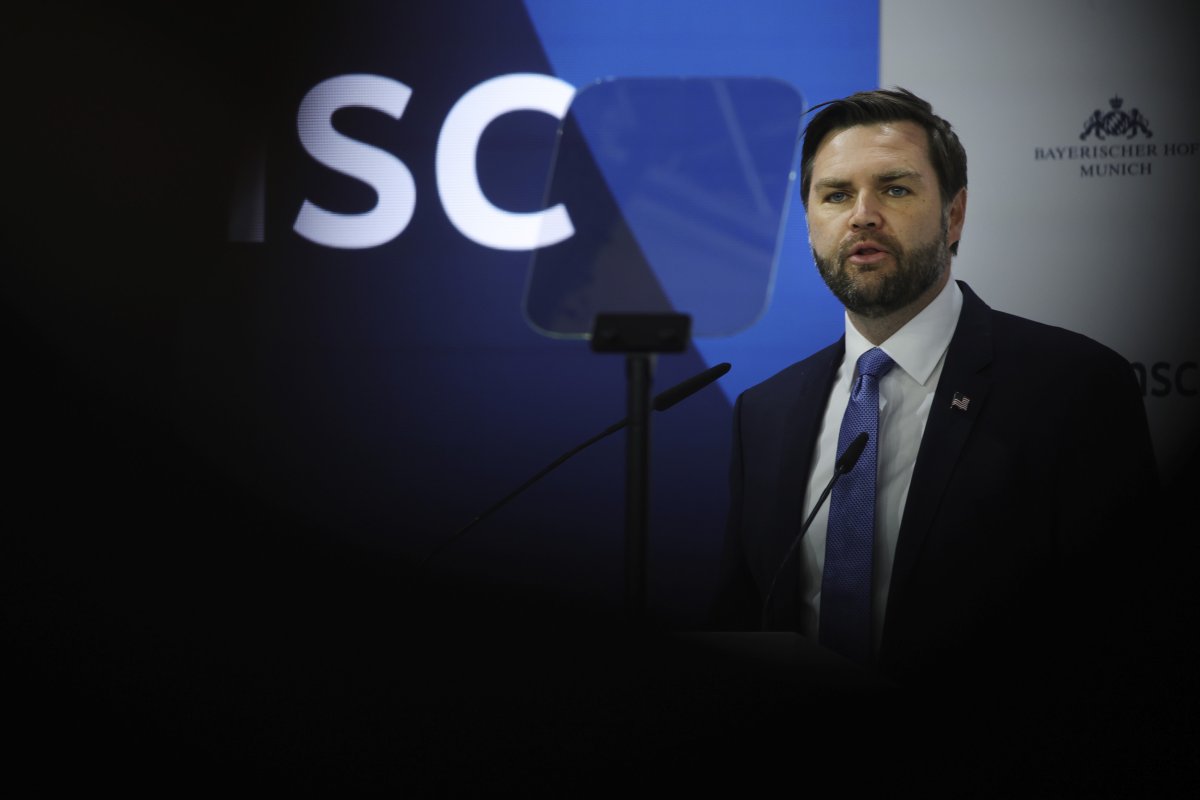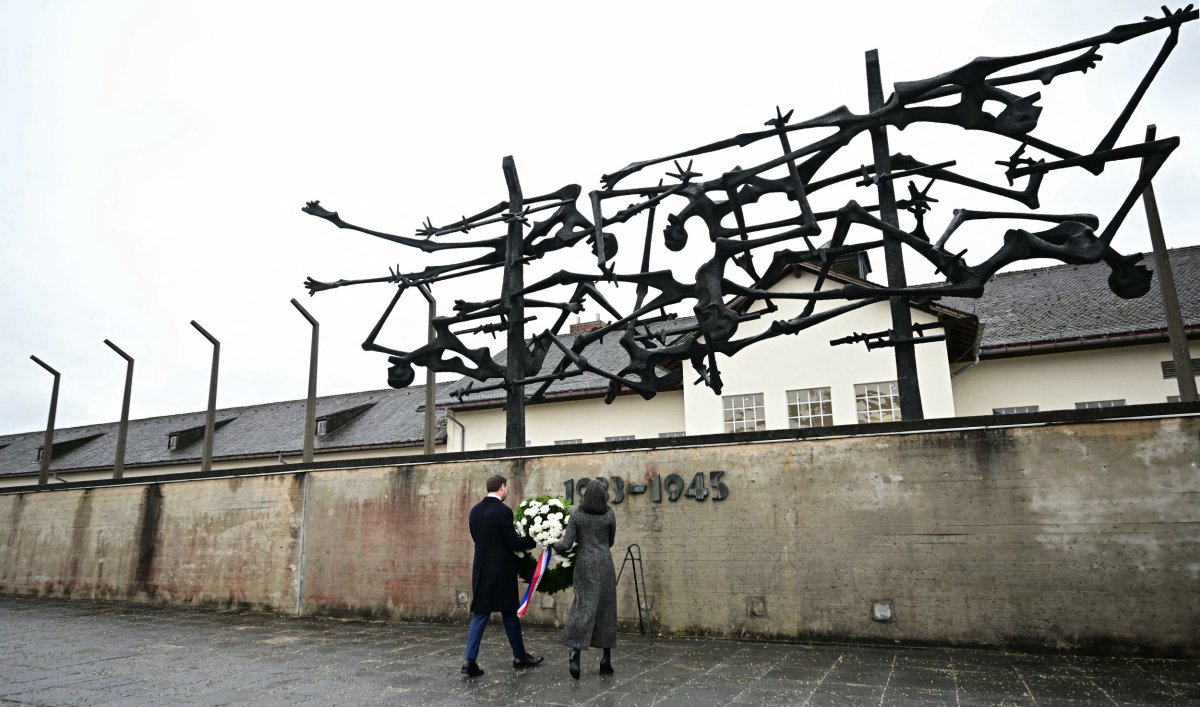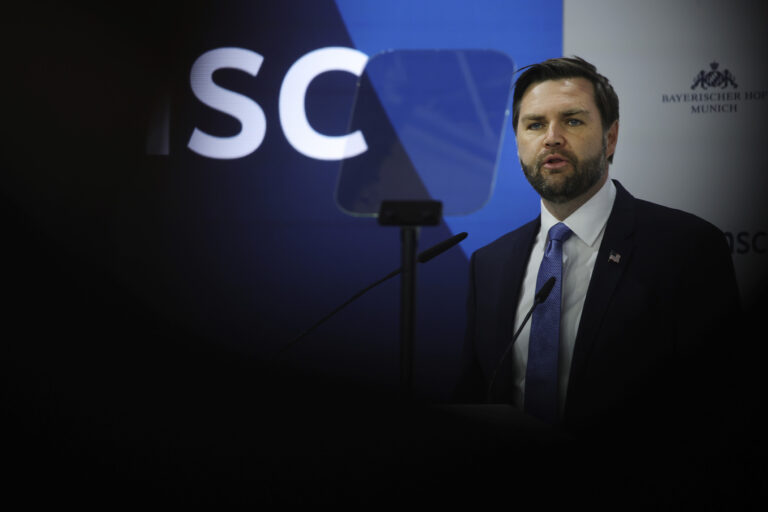The recent Munich Security Conference served as a stark reminder of the widening chasm between the United States and its European allies.
Vice President JD Vance and Special Envoy to Ukraine and Russia General Keith Kellogg delivered candid speeches that crystallized the Trump administration’s realist perspective on America’s role on the world stage. Their message was clear: Europe must assume greater responsibility for its own defense and address internal challenges that threaten the fabric of Western democracies and the strength of their alliances against external threats.
During his address, Vice President Vance admonished European leaders for retreating from fighting “the threat from within—the retreat of Europe from some of its most fundamental values, values that are shared with the United States of America.” He spent much of his speech focused on the erosion of free speech in Europe, in particular.
“This is a security conference, and I’m sure you all came here prepared to talk about how exactly you intend to increase defense spending over the next few years,” he told European delegates. “But let me also ask you: how will you even begin to think through the kinds of budgeting questions if we don’t know what it is that we are defending in the first place?”

Photo by Johannes Simon/Getty Images
He chided the Europeans for being lax on migration while shutting down their own citizens’ criticisms of their policy choices. General Kellogg echoed these sentiments, emphasizing the necessity for Europe to bolster its defense capabilities. He pointed out that the U.S. can no longer be the primary guarantor of European security, especially when European nations are not meeting their defense commitments. Why European nations thought they could continue to get away with this approach is inexplicable.
Vance’s and Kellogg’s stance, speaking as representatives of a Trump administration that has inherited a geopolitical mess from its predecessor, is not a departure from what President Trump has vocalized for years. During his first presidential campaign, he famously lamented, “We are getting ripped off by every country in NATO.” His view reflects a long-standing frustration with European nations that have never fulfilled their defense spending obligations, effectively relying on U.S. taxpayers to subsidize their security while European nations pour resources into massive welfare programs, NGOs, and immigrant resettlement projects.
The Trump administration’s perspective, as General Kellogg noted, is built upon a realist understanding of international relations. And the patterns it identifies are real. It is perfectly reasonable for President Trump to view capable Western European countries as taking advantage of the U.S. by leaning heavily on American military support without proportionate contributions of their own. This dependency not only strains U.S. resources but also fosters a culture of complacency among European allies, many of whom have taken to using their freedom and subsidized wealth to fund anti-Western NGOs.

Photo by TOBIAS SCHWARZ/AFP via Getty Images
Domestically, the Trump administration is focused on ambitious initiatives aimed at revitalizing America’s infrastructure, economy, and law enforcement. President Trump’s efforts to turn “Make America Great Again” from slogan to reality require substantial investment and cannot afford to be compromised by allies who are unwilling to shoulder their share of the collective security burden.
If America is going to be able to stay as strong as it needs to be, its international partners need step up and contribute meaningfully to shared and security objectives.
Ultimately, while Russia’s invasion of Ukraine constitutes the biggest threat to peace and security in Europe since the end of the Cold War, it is much more of a threat to Europe’s security and stability than it is to the United States. Therefore, the onus is on Europe to protect Europe with European funds and soldiers, much more than the burden is upon the United States.
The reactions from European delegates to Vice President Vance’s speech were telling, and not in a good way. The address was met with contempt, dismissiveness, and “almost no applause.” Such responses evidence a refusal to confront reality. If European leaders choose to dismiss the Trump administration’s concerns, the situation is poised to deteriorate, and the responsibility will lie solely with European leaders who have consistently—since at least 2015 when President Trump announced his first run for president—not taken his words as seriously as they should have.
European leaders would be wise to shake their attitude and recognize that the Trump administration is providing a much-needed wake-up call. Its position is not to abandon Europe, nor is it threatening to do so flippantly. Trump is giving Europe a necessary push towards self-reliance and resilience. The U.S. remains committed to its alliances but insists that European nations take proactive measures against rogue regimes and burgeoning terrorist threats foreign and domestic. As just one egregious example of what must be fixed, Europe cannot accept anti-Israel fanaticism and Jew hatred in its cities then shrug helplessly in surprise, as if its funding of anti-Israel NGOs and welcoming millions of unvetted immigrants had nothing to do with it. The era of unilateral American defense guarantees—and Europe undermining the West’s strength through its domestic policies—is drawing to a close. It was never sustainable and is now significantly fraying.
European leaders may entertain the notion of aligning more closely with powers such as China. They will quickly learn that partnering with China will not be the same as partnering with the United States. The transatlantic partnership is good for America and Europe. But that doesn’t mean Europe can take American support for granted.
European leaders may also make the mistake of thinking President Trump’s stance is a transient phenomenon. That is wrong, too. Trump’s resurgence is indicative of a broader shift in American foreign policy. The U.S. will support those who support themselves and champion the values that make the West free and prosperous. Such a foreign policy is intuitive, popular, and fair. It is not going by the wayside anytime soon.
European nations can no longer afford to behave like a teenager who lives off his American parents’ credit card, then rolls his eyes when told to get a job. Europe must stand tall, embrace maturity, and actively participate in safeguarding our shared civilization. If it fails to do so, its downward slide will accelerate. And if that happens, and European leaders’ poor decisions leave Europe in shambles, it will not be able to rely on the United States to pick up the pieces.
Jason D. Greenblatt was the White House Middle East envoy in the first Trump administration. He is the author of In the Path of Abraham: How Donald Trump Made Peace in the Middle East—and How to Stop Joe Biden From Unmaking It and the founder of Abraham Venture LLC. Follow him on X: @GreenblattJD


